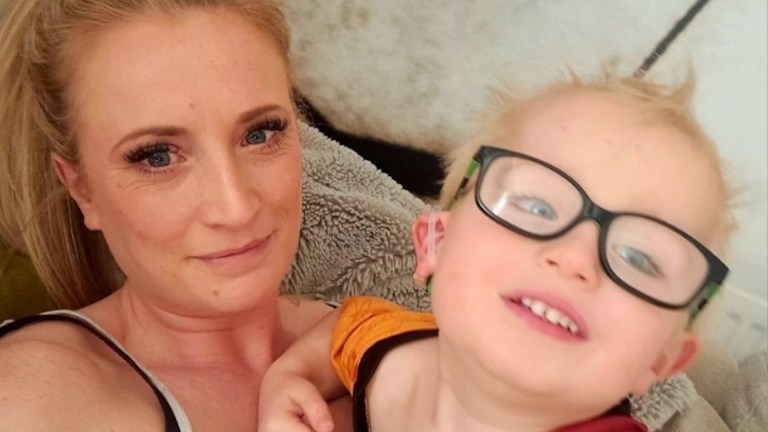“As I got through the proceedings, there was no chance of me fighting back for my kids because the council wouldn’t put me in a bigger house,” Candice recalls. She explained to Big Issue that the flat she was moved to after the children were removed was deemed by authorities too small for them to be returned.
Agenda Alliance spoke to mothers who have had their council properties taken away following child removal. Lewis explains they either have to “find money to pay for the bedroom tax, which these women do not have because we’re in a cost of living crisis, or they are removed from the property”.
Candice’s mental health spiralled after her children were taken. It was only at this point she faced addiction.
“A woman who had a child removed because she’s in an abusive relationship may drink or take drugs as a coping mechanism to deal with the pain she’s going through,” Lewis says.
“Once the child is removed, that responsibility that she had is no longer there. You spiral out of control and the pain worsens for you, so you find a way to numb that pain. There’s no service that’s going to come and help you try and get your children back.”
The number of children in care is on the rise. In March 2023, there were 84,840 children looked after by local authorities in England. This was an increase from 78,140 in 2019. According to the Local Government Association, councils are under pressure to find residential and foster placements.
Advertising helps fund Big Issue’s mission to end poverty
Lewis stresses that Agenda Alliance is not saying these children should not be taken into care – she believes in the “majority of cases”, it is most likely the right decision.
But Lewis wants to see increased support for mothers like Candice, who want and have the capacity to be good parents, so they can be reunited with their children sooner.
Agenda Alliance believes women should be given an advocate with lived experience of child removal to support them to navigate the first six months – “to give them at least the best possible chance of being reunited with their family”.
Candice agrees. “I think there should be an advocate – not somebody from social services, but somebody who’s going to come and step in and show you in the right direction, show you what services are out there and to stand by you while you’re going through it.”
This might be through signposting them to places they can get help for substance misuse, domestic abuse or housing support.
Indy Cross, the chief executive of Agenda Alliance, says: “When a child is removed from their parents it’s like an earthquake in a family. At Agenda Alliance we aim to provide a voice for overlooked women, including those who’ve been judged ‘bad mothers’.
Advertising helps fund Big Issue’s mission to end poverty
“Losing a child to care has a harrowing impact on mothers whose voices and experiences are too rarely heard. We know from our work with women affected that they feel forever the trauma and shame. Yet, most mothers whose children are removed by courts are themselves victims of domestic abuse by a male partner.”
Children in the poorest areas are worse affected, with research finding that they are 10 times more likely to be taken into care than children from wealthier regions.
There are disproportionately higher rates of children in care in the north of England than in the south – the rate of children in care in the north is 93 per 10,000 children, compared with 62 in the rest of England. This is costing councils in the north an additional £25bn each year.
The Agenda Alliance briefing was commissioned by Greater Manchester Combined Authority (GMCA) to examine barriers facing women with multiple unmet needs.
It sets out a series of recommendations for GMCA which could also be implemented on a national scale. These included improving relationships between social services, support advocates and women experiencing child removal, taking a trauma-informed approach to communication and ring-fenced funding for local and specialist organisations.
Kate Green, the deputy mayor of Greater Manchester for crime, criminal justice and fire, said: “We welcome the calls to encourage services to work together more closely, and to roll out the different approach taken by family drug and alcohol courts across our city-region.
Advertising helps fund Big Issue’s mission to end poverty
“By implementing the findings from this briefing, we hope that Greater Manchester can become somewhere that mothers facing this trauma, and their children, are treated with compassion and can access the support they need.”
Candice managed to get herself out of the worst point in her life, because she “just wanted to be a mum again”.
She started going to women’s groups, volunteering at an outreach centre, and she has since become a crisis and homelessness worker and runs a women’s group of her own to support others who have been through child removal.
Candice recognises the importance of a support system, and she now has regular contact with all four of her children. “I see my kids every day now,” she says.”I want them to be proud of their mum. I want them to see that no matter how dark life gets, you can turn your life around. I just want to be a good mum.”
Do you have a story to tell or opinions to share about this? Get in touch and tell us more. Big Issue exists to give homeless and marginalised people the opportunity to earn an income. To support our work buy a copy of the magazine or get the app from the App Store or Google Play.









